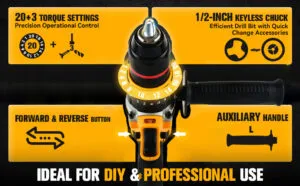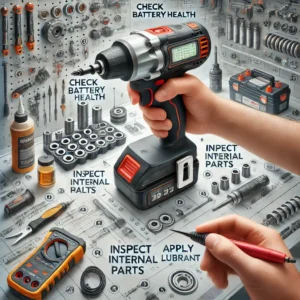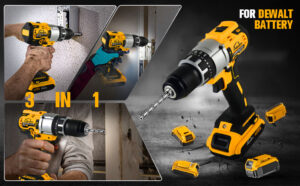When you’re using an impact wrench, one of the most important things is ensuring that you have the right sockets and adapters to match the tool’s power and the job at hand. Whether you’re in the automotive industry, construction, or any heavy-duty applications, using compatible accessories for your impact wrench can make a significant difference in performance, safety, and efficiency. At Autojare, we produce not only excel in quality but are also compatible with a wide variety of sockets and adapters.This article explores the various types of sockets and adapters compatible with impact wrenches, their specifications, and tips for effective usage.
1. Introduction to Impact Wrenches
Impact wrenches, also known as impact guns, use a hammering mechanism to deliver high torque output, making them ideal for loosening or tightening bolts and nuts quickly. if you want to know more about impact wrench , you can browse our previous articles : https://autojaretool.com/what-is-an-impact-wrench-and-how-does-it-work/
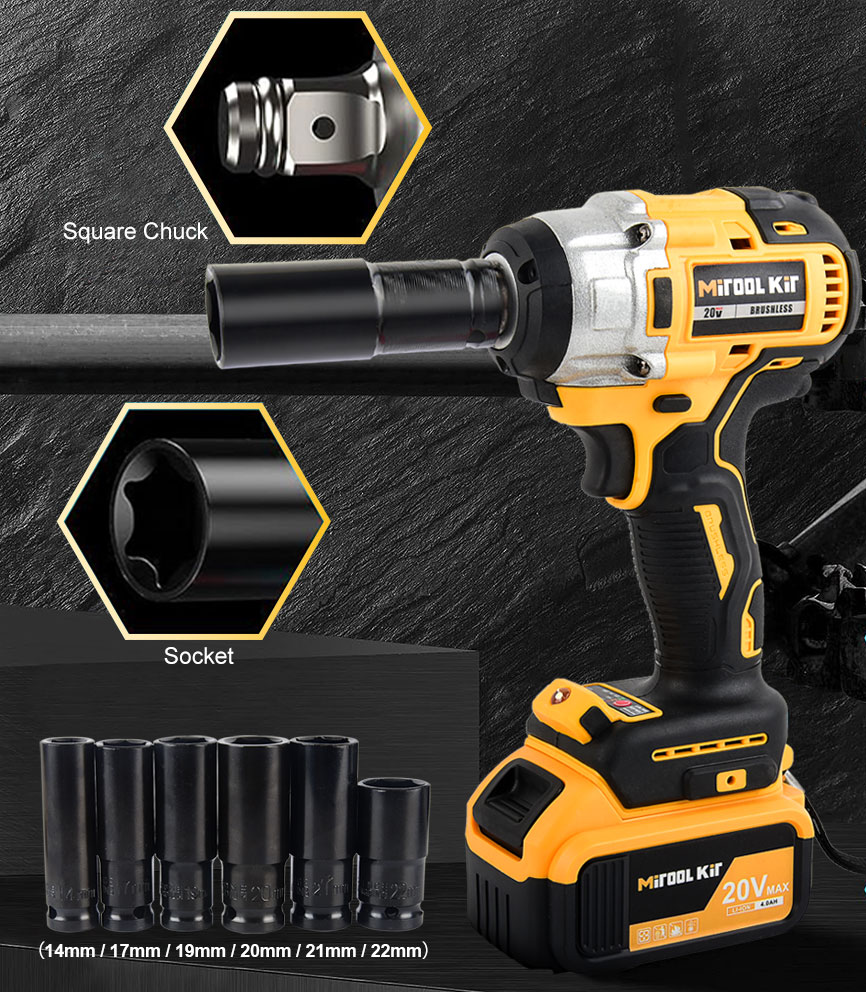
2. The difference between regular sockets and impact sockets.
Impact sockets are specifically designed to withstand the high torque and stress exerted by impact wrenches. They differ from regular sockets in material and design. below table for your review:
| Feature | Regular Sockets | Impact Sockets |
|---|---|---|
| Material | Typically made from chrome-plated steel | Made from high-strength chrome molybdenum or chrome vanadium steel |
| Wall Thickness | Thinner walls, less durable | Thicker walls, designed to absorb impact shock |
| Design | Standard design for manual or low-torque tools | Designed specifically for high-torque applications |
| Usage | Suitable for light automotive and household tasks | Ideal for heavy-duty tasks, such as automotive repairs and construction |
| Torque Resistance | Prone to cracking under high torque | Built to withstand high torque and impact forces |
| Cost | Generally less expensive | Typically more expensive, but more durable |
| Coating | Often chrome-plated for aesthetics | Usually finished with black oxide or phosphate coating to prevent corrosion |
3. Types of Sockets Compatible with Impact Wrenches
Sockets are critical components that attach to the impact wrench to perform various tasks. Here are the primary types of sockets compatible with impact wrenches:
3.1 Hex Sockets
Hex sockets are the most common type used with impact wrenches. They are designed to fit over hexagonal fasteners.
Specifications
- Drive Sizes: 1/4″, 3/8″, 1/2″, and 3/4″
- Material: Chrome vanadium or chrome molybdenum steel
- Usage: General-purpose applications, including automotive and machinery.
3.2 Deep Sockets
Deep sockets are designed to accommodate longer bolts and nuts, providing extra depth for those hard-to-reach fasteners.
Specifications
- Drive Sizes: 3/8″, 1/2″, and 3/4″
- Material: Chrome vanadium steel
- Usage: Ideal for long bolts, such as those found in engines and heavy machinery.
3.3 Short Sockets
Short sockets are more compact and suitable for use in confined spaces where depth is not a concern.
Specifications
- Drive Sizes: 1/4″, 3/8″, and 1/2″
- Material: Chrome vanadium steel
- Usage: Tight spaces, such as under car dashboards or engine compartments.
3.4 Universal Sockets
Universal sockets feature a design that allows them to grip various shapes and sizes of fasteners.
Specifications
- Drive Sizes: 1/4″, 3/8″, and 1/2″
- Material: Chrome molybdenum steel
- Usage: Versatile applications, particularly useful in tight or awkward spaces.
3.5 Impact Socket Sets
Impact socket sets come with multiple sockets in varying sizes and depths, often housed in a protective case for organization.
Specifications
- Contents: Various sizes (e.g., 8mm to 24mm) and types (deep and shallow)
- Material: Chrome molybdenum steel
- Usage: Comprehensive toolkits for automotive repair and construction work.
3.6 Specialty Sockets
Specialty sockets are designed for specific tasks, such as spark plug sockets or oil filter sockets.
Specifications
- Varies: Sizes and shapes are tailored to specific fasteners.
- Material: Varies, often chrome vanadium.
- Usage: Specific applications in automotive and machinery repairs.
Here’s a compatibility chart for quick reference:
| Socket Type | Drive Sizes | Typical Applications | Recommended Material |
|---|---|---|---|
| Hex Socket | 1/4″, 3/8″, 1/2″, 3/4″ | General use in automotive and construction | Chrome vanadium/molybdenum steel |
| Deep Socket | 3/8″, 1/2″, 3/4″ | Long bolts and nuts | Chrome vanadium steel |
| Short Socket | 1/4″, 3/8″, 1/2″ | Tight spaces | Chrome vanadium steel |
| Universal Socket | 1/4″, 3/8″, 1/2″ | Versatile uses | Chrome molybdenum steel |
| Impact Socket Set | Various | Comprehensive toolkits | Chrome molybdenum steel |
| Specialty Socket | Varies | Specific tasks like spark plug replacements | Varies |
| Drive Adapters | 1/4″, 3/8″, 1/2″ | Transitioning between socket sizes | Chrome vanadium/molybdenum steel |
| Socket Reducers | 1/2″ to 3/8″, 3/8″ to 1/4″ | Adapting larger to smaller sockets | Chrome molybdenum steel |
| Socket Extenders | Various | Reaching deep-seated fasteners | Chrome vanadium steel |
| Universal Joint Adapters | 1/4″, 3/8″, 1/2″ | Accessing fasteners at different angles | Chrome molybdenum steel |
4. Adapter Types for Versatility
Sometimes, the socket drive size doesn’t match your impact wrench. That’s where adapters come into play. The most common types of adapters include:
- Socket adapters: These convert one drive size to another. For example, a 3/8-inch drive wrench can be adapted to use 1/4-inch sockets.
- Universal joint adapters: These allow for flexibility when working at odd angles, providing up to 45 degrees of rotation. These are particularly useful in automotive applications where bolts may be hard to reach.
- Torque-limiting adapters: These are designed to prevent over-torquing, which is essential when dealing with sensitive fasteners that could break under excessive pressure.
It’s important to check the torque rating of the adapter to ensure it can handle the force of your impact wrench. For instance, some adapters are rated up to 300 ft-lbs, while others can handle up to 600 ft-lbs. Always choose the one that matches your tool’s specifications.

5. Impact Extensions for Extra Reach
There are times when the fastener you need to work on is in a hard-to-reach area. Impact extensions allow you to reach those awkward spots without losing torque power.
Extensions come in varying lengths, from 3 inches to over 10 inches, giving you the flexibility to reach into deeper spaces. However, it’s important to keep in mind that the longer the extension, the more torque you lose, often around 10% to 20% depending on the length.
- For example, using a 10-inch extension could reduce the wrench’s effective torque from 600 ft-lbs to 480 ft-lbs. It’s something to consider when you need maximum force.
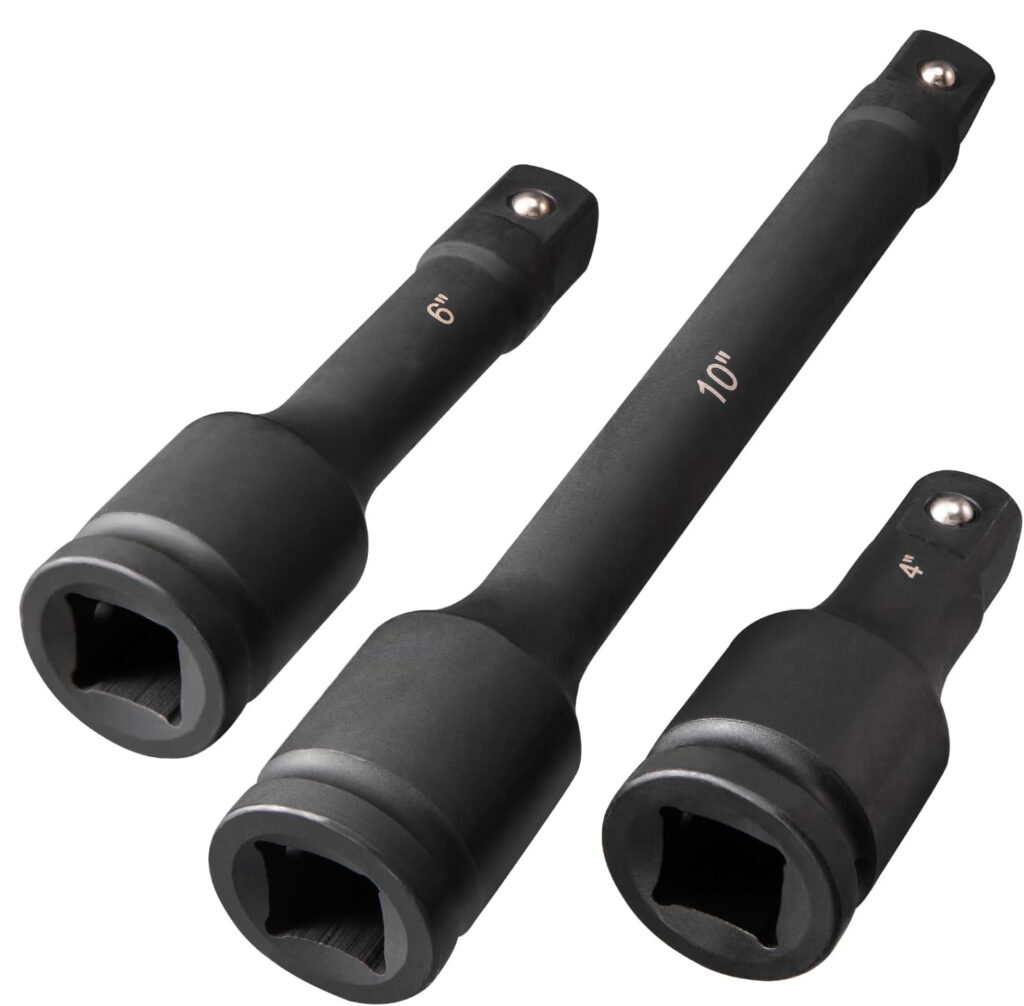
6. Protective Coatings and Finishes
Sockets and adapters often come with different finishes. The most common are black oxide and phosphate coatings. These finishes not only protect the tools from corrosion but also increase their durability.
- Black oxide coating: Known for its corrosion resistance and is often applied to impact sockets.
- Phosphate finish: Provides a more affordable but equally effective level of corrosion protection, often found in lower-cost impact sockets.
While these finishes don’t directly affect performance, they do play a role in the lifespan of your tools, particularly in harsh working environments like automotive repair shops where exposure to chemicals is common.
7. Socket Retention Methods
Sockets need to stay securely attached to the impact wrench during use. There are two common retention methods:
- Friction ring: This is the most common retention method for impact wrenches. It uses a metal ring that fits snugly into a groove in the drive end of the socket. It’s ideal for quick socket changes, making it convenient in professional settings.
- Pin detent: This provides a more secure connection but requires more effort to swap sockets. It’s perfect for heavy-duty applications where socket retention is critical.
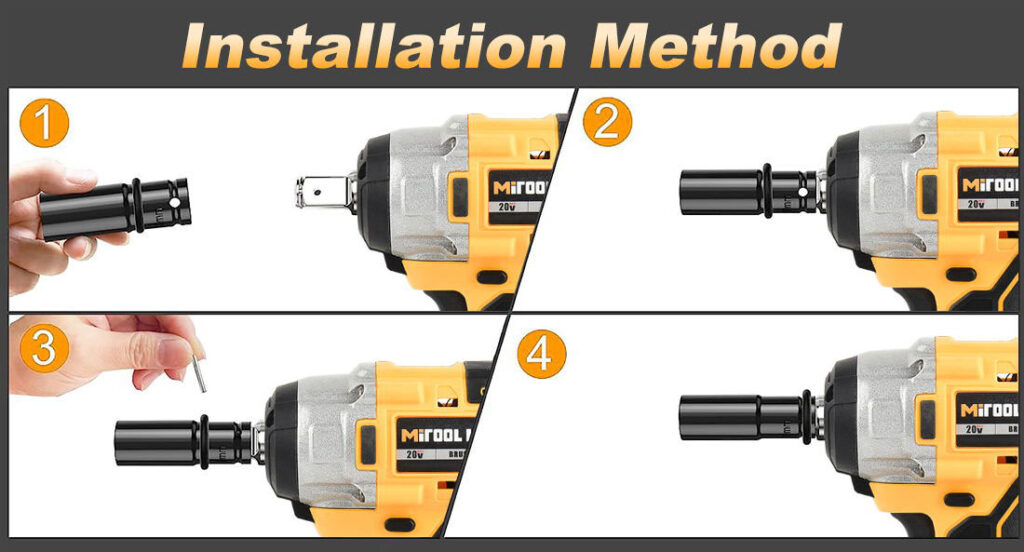
Conclusion
Selecting the right sockets and adapters for your impact wrench ensures that you’re getting the most out of your tool while maintaining safety and efficiency. At Autojare, we prioritize quality and performance in everything we produce, and that extends to ensuring that our cordless impact wrenches are compatible with a wide range of sockets and adapters.
In our experience, we’ve learned that quality, delivery, and service are the key factors that customers look for in a supplier. By offering a variety of socket options and ensuring compatibility with top industry standards, we aim to meet those needs and more.
So, whether you’re a purchasing manager in the USA or a large supermarket buyer in Europe, know that Autojare has you covered with both the tools and accessories you need to get the job done efficiently.

